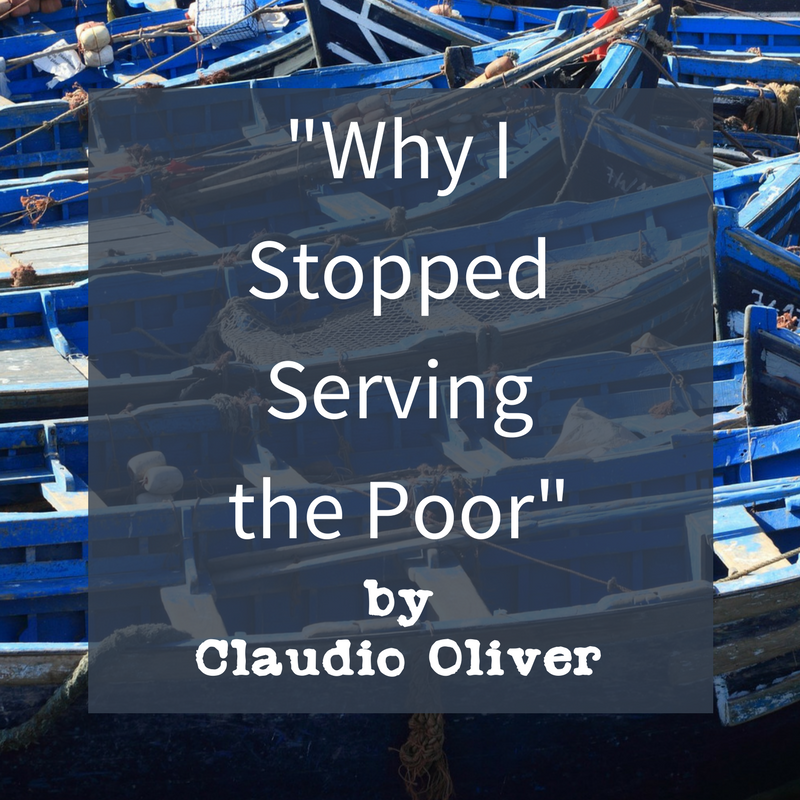 Ok so you've got a heart of justice. Now what? How do you get involved not in charity work but in justice work? This is a great question. One I hear a lot, and honestly, one I ask myself all the time. Andrew, Cade, and I have been back in the U.S. now for 3 years, and we've struggled to figure out how to get involved in our own community. Part of that is due to reverse culture shock; another part is due to deep financial struggles; and yet another is due to Juniper's birth summer of 2015. In many ways, it's healthy to sit and wait before we jump in. But I must admit, I hate waiting, no matter the reason. While I can't say that we've never quit anything, I can say that we try as hard as we can to really commit to something. If we're going to get involved, we usually take a while before we say yes because we know we need to count the cost. Involvement takes sacrifice. Whether it's time, money, or other resources, it will always require a sacrifice in some form. Here's a few guideposts I'm currently trying to follow as the Thomas family is finally (I'm smiling big right now!) ready to jump into some justice work. 1. Research and know the organizations you plan to get involved with -- this may be the waiting stage for many of us. Sometimes it takes a while to know what organizations in your community are doing effective work. Even if your involvement happens through an automated process that extracts funds from your bank account without you having to look at it ... if you are donating money to an organization that you never check in/up on, why? When justice is a life of right relationship, it is justice work to be in relationship with the organizations you invest in. This doesn't mean you have to bombard them with exhaustive questionnaires about how they use their finances. Imagine if your boss did that to you or better yet, your children. But ask yourself is the organization trustworthy? Is it doing relief when it should be doing development? Is it building relationships with its stakeholders? 2. Invest in root solutions. Is the work you are going to get involved with dealing with a root issue? Or is it in the business of branch pruning? This is not always easy to identify, but if you can, try to understand the underlying issues of why this organization exists. Check out p. 78-79 of this free CRS ProPack to think through a problem tree. Root solutions are typically more involved in holistic care of a human being. This may mean they see less "results" as we typically define that word. But deep relationship is hard to quantify. Qualitative success may simply look like a long conversation between two people. 3. Sustain your involvement. Will you be able to sustain your involvement in this organization? Certainly there are phases of life and circumstances that cannot be foreseen, but as much as possible, try to sustain your involvement when you dive in. While a one-time donation of $200 may help a certain pressing need, a smaller monthly donation that the organization can count on is exponentially better. I'm not saying don't give one-time donations, but make sure those one-time checks are for some specific need. If your idea of getting involved is giving a $50 donation to a random, different organization every month, I'm afraid you are doing charity work, not justice. Remember that relationship is the defining characteristic of justice. We are called to be faithful spouses, not Don Juans, even with our finances. 4. Local First. I strongly suggest to only get involved locally first. Why? Because you know your context well. If you begin getting involved in a local organization and they start to do something that doesn't seem right, your capability to keep them accountable is quite high. Even if your accountability is simply to say, "Hey I don't think this is right," you have authority in your context. There's many other reasons to get involved locally first: you see the struggle, the pain, the success with your own eyes. I cannot stress how important this is. Once you are involved locally, that may take you to get involved regionally, especially if the nonprofit you volunteer with has other branches in the region. 5. International caution. If you want to get involved internationally, I don't want to stop you. However, I do want to stop you from doing international charity. Build relationship first. If you have friends who are missionaries and you believe in them as Christ followers, your involvement in supporting them will likely be justice work. Be sure to sustain your relationship with them. Read their newsletters, send them an email from time to time. Send them more than your monthly contribution every once in a while -- not for relief work, but so they can go to the movies or buy an expensive American candy bar. If you have gone on a short-term missions trip and you want to support the work in the area you visited, and you have ongoing relationship with locals or missionaries in that area, your support will likely be justice work. Make sure you are supporting a local discipleship body, and do so in a way that does not create dependence. Make sure expectations are clear, accountability is present, and relationship is maintained. (See chapter 5 and appendix D of A Smoldering Wick). If you are mutual friends with people who are passionate about their friends who are missionaries, your support of those mutual friends will likely be justice work. Of course there's no set formula for justice, just as there is no set formula for relationship. But keep in mind as you go serve or as you plan to support organizations that justice is mishpat = giving people what is due them AND tzedekah = a life of right relationship.
0 Comments
|
Gena's
|

 RSS Feed
RSS Feed

